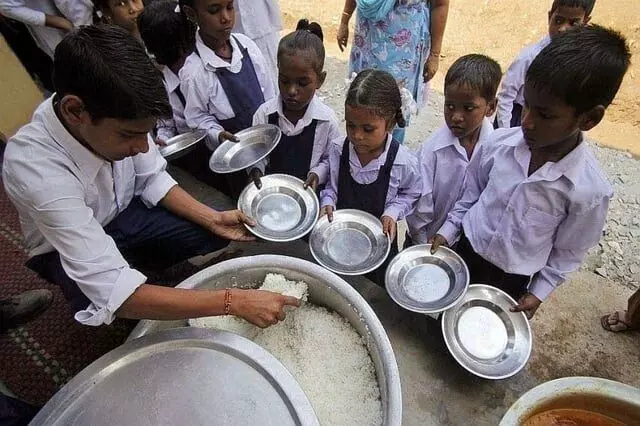India’s income gap impacts women's, children’s nutrition
The increase in food prices and fall in income are the principal reasons behind the decrease in the consumption of healthy food
By Neelambaran A
Hyderabad: Good health and nutrition can be achieved through a healthy diet. Instances of fatal non-communicable diseases such as cardiovascular conditions, cancer and diabetes are linked to unhealthy eating habits.
However, healthy food is beyond reach for around 74 per cent of Indians as recently as 2021, as per the ‘Regional Overview of Food Security and Nutrition; Statistics and Trends’ published by the Food and Agricultural Organisation (FAO) of the UN.
The report also found the prevalence of undernourishment in around 16 per cent of the population, while 37 per cent of the children are affected due to stunting. Around 59 per cent of Indian women between 15 to 49 are found anaemic, the highest in southern Asia.
The increase in food prices and fall in income are the principal reasons behind the decrease in the consumption of healthy food among a larger section of the population. The lack of nutritious food is leading to several issues including the mental and physical health of children in the future.
Need for a healthy diet
A healthy diet is a combination of a variety of foods including staples, legumes, vegetables, fruits, dairy products, meat and eggs. Cereals, millets, rice, wheat, ragi, jowar, potato, yam, carrots, and lentils are a few food items considered crucial for a healthy diet.
Dr Addu Kiranmayi, senior nutritionist and lifestyle consultant at Rainbow Children’s Hospital, Himayatnagar, Hyderabad, explained the need for a healthy diet. “Good nutrition is the main foundation for proper growth and development. Women who are well-nourished are more likely to give birth to healthy babies. Adequate nutrition and a healthy diet are also critical for mental and physical development, directly affecting a child’s learning capacity and their future,” she said.
A healthy diet is crucial for women and children
Nutritious food is not only essential but crucial for women and children to stay safe from infectious and non-communicable diseases.
“A well-nourished child is 10 times less likely to die from common infectious diseases such as pneumonia than a severely undernourished one,” Dr Kiranmayi said.
Further, good nutrition reduces the risk of obesity, cancer and other non-communicable diseases such as diabetes and cardiovascular diseases.
“The rapid urbanisation and changing lifestyles which have led to a shift in dietary patterns is impacting the consumption of healthy diets which helps protect against malnutrition and the risk of non-communicable diseases,” Dr Kiranmayi added.
A healthy diet and income level
Not all families in India are financially empowered to afford a healthy diet.
Though the production of several food items is high in the country, the capacity of a section of the population to purchase healthy foods items have a glaring disparity.
“If the cost of the food exceeds 52 per cent of an average household’s income, the diet is deemed unaffordable. Recent research titled ‘The State of Food Security and Nutrition in the World’ stated that in India, a healthy diet costs 3.066 purchasing power parity (PPP) dollars per person per day, the lowest among the countries considered,” Dr Kiranmayi said.
Stunting in children
The lack of nutrition has a telling effect on children who suffer badly from undernourishment leading to stunting. This could prevent the children from reaching their physical and cognitive potential, affecting their education and economic aspirations.
“Stunting is defined as low height-for-age, resulting from chronic or recurrent undernutrition, usually associated with poverty, poor maternal health and nutrition, frequent illness and/or inappropriate feeding and care in early life,” Dr Kiranmayi said.
She also insisted on increasing the Investment in nutrition, spending money on tackling malnutrition could result in a greater impact to save and improve millions of lives.